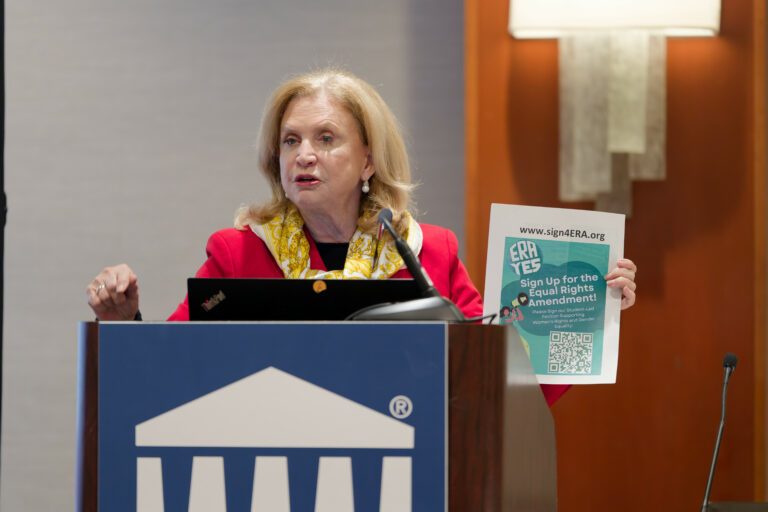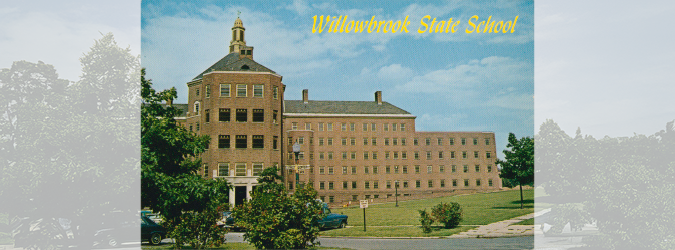Supporters of New York ERA Ballot Referendum Prepare for Uphill Battle for Passage in November
1.19.2024

Supporters of the New York Equal Rights Amendment to the state constitution outlined their hopes and fears in the runup to the statewide ballot referendum in November.
The panel discussion, “Each One Reach One,” focused on the grassroots organizing needed to win ratification of the amendment. The amendment would enshrine rights for women, transgender individuals and people who have disabilities in the New York State Constitution.
A panel of legislators, activists and lawyers participated in the Women in Law Section’s Edith Spivack Program at the New York State Bar Association’s Annual Meeting in New York City. According to the panelists, 75% of New Yorkers support an Equal Rights Amendment. However, many of those polled did not know that rights for women and other groups were not already protected under New York State law.
“The ERA provides broad safeguards in our state. This is a critical moment where we need to legally recognize equality for all residents,” said Assemblywoman Rebecca Seawright who represents part of Manhattan.
The campaign, run by a coalition of groups, will employ traditional media, social media and old- fashioned grassroots, neighborhood organizing.
“Many people don’t vote and many voters don’t know enough to flip the ballot over for the referendum questions,” said New York Civil Liberties Union’s Katharine Bodde. “We will need four million people to turn over their ballots to vote yes.”
Events will ramp up in the fall to keep it top of mind for voters as the election nears. Fundraising is also key with organizers estimating the need for $20 million to $25 million raised for a successful statewide media campaign. The civil liberties union’s Sasha Ahuja says the campaign will “create urgency through ads and social media influencers. The stakes here in New York are high. This amendment enshrines rights protecting New Yorkers regardless of whatever way the political winds blow.”
Background: How We Got Here
The ERA regained momentum in the summer of 2022 following the U.S. Supreme Court’s Dobbs decision overturning Roe v. Wade and returning the regulation of abortion to the states. Days after the decision, Gov. Kathy Hochul called the Legislature into session to pass the ERA. As required in the state constitution, the bill passed in a second consecutive legislative session in January 2023. The amendment will be on the statewide ballot in New York on election day, Nov. 5, 2024. Legislators and their staff acknowledge that it’s important for the statewide referendum to land in a presidential year to benefit from the larger voter turnout.
Seawright said the initial bill faced fierce opposition from the Assembly Republicans, who are in the minority. She says it was a precursor to the opposition she expects from the state GOP this fall. “Success in effort requires a coordinated effort. We know that the issue of transgender rights and abortion rights will mobilize some conservative and religious groups in our state. We need to be ready for this opposition when it comes.”

Not Your Mother’s Movement: Federal ERA Is Back
A highlight of the Spivack event was an address by former New York Rep. Carolyn Maloney, who is organizing the fight for passage of the Equal Rights Amendment to the U.S. Constitution. Now out of office, Maloney devoted her energy fulltime as the board chair of the ERA Coalition.
She encouraged the attorneys in attendance to work within their circles of friends and neighbors to pressure members of Congress to pass the ERA or face being voted out of office.
“Why is it so hard to have these 23 words enshrined as the 28th amendment? We need to hold members of Congress accountable,” she said. “If we don’t stop them from chipping away at our rights, they will keep coming after us. If we get equality in the constitution they can’t come after us.”
Maloney said ERA passage on the federal level also gives women the standing to press for enforcement of the laws of equality in state courts. Maloney cited statements by U.S. Supreme Court Justice Antonin Scalia saying, “If it’s not there [in the U.S. Constitution], then discrimination is allowed since it’s not outlined there.”
Finally, Maloney asked for help from Republican women to pass the ERA. She recounted several successes in Congress when support from women across the aisle was crucial in getting bills passed.
“I say enough! Let’s make it happen this year and if we don’t, we need to create a women’s party to get equal rights in the Constitution,” she said.






